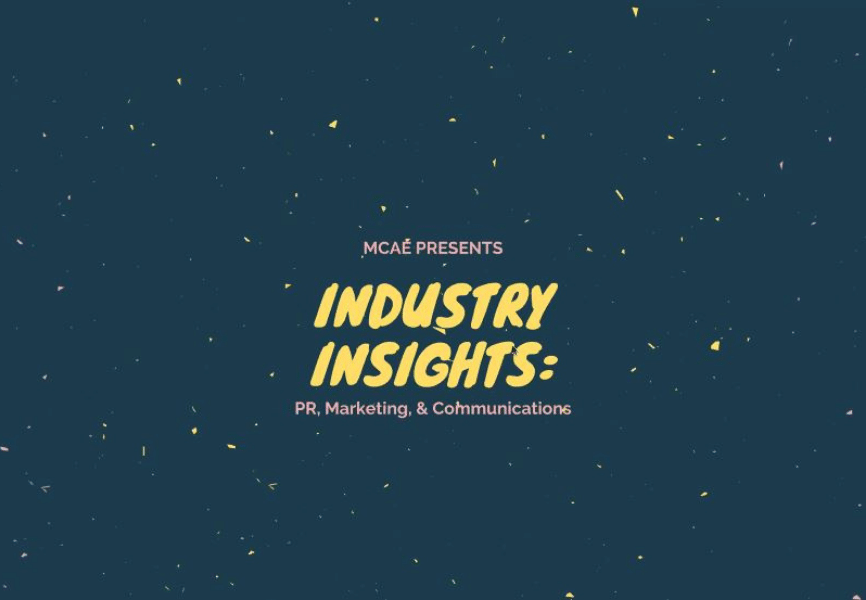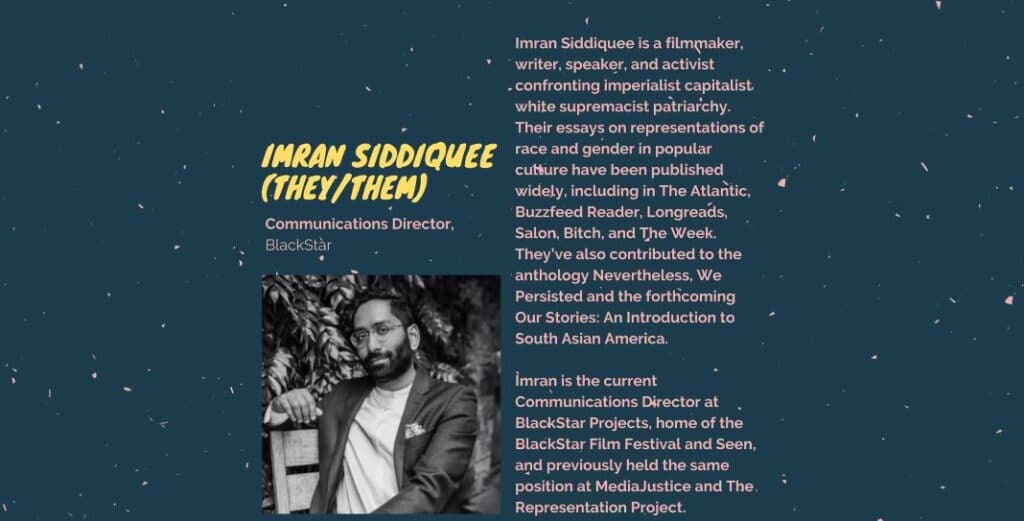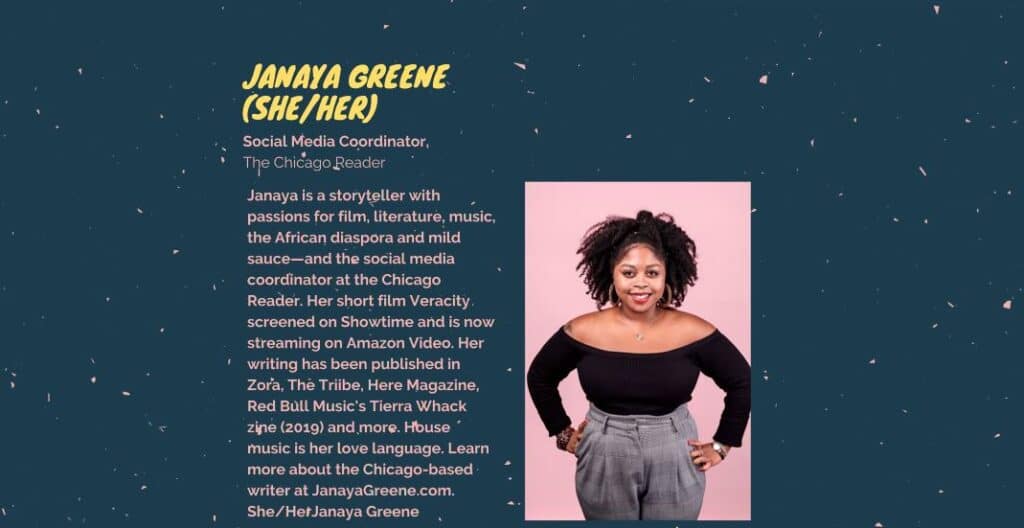There’s a wide range of employment opportunities that WRD prepares its students for, social media being among them. With courses like Content Management (taught in Winter 2021 by Dr. Lisa Dush), we can learn the science behind this field of communication and pursue careers in social media. Last Thursday, the DePaul University Media, Communications, Arts & Entertainment Career Community (MCAE) hosted a panel with professionals who have made it their careers, discussing with them their insights into the work.
Imran Siddiquee is the Communications Director for the BlackStar Film Festival, an organization that promotes the work of indie filmmakers. They assumed the position earlier this year before the onset of COVID after multiple other jobs, including freelance writing. They are also currently developing their own film.
As the Social Media Coordinator at The Chicago Reader, Janaya Greene manages the magazine’s online engagement. She also pursues her own freelance writing and reporting outside the job.
The panel opened with a question about how each of them came to work in media. Greene started with her studies at Ohio University at Columbus in News Diplomacy. Internship opportunities for news media was limited in the area, but she was able to find some through remote online work, giving her experience in that now common reality. She eventually returned to Chicago to practice health journalism, but she instead landed a position at The Chicago Reader as an administrative assistant, which led to her becoming the social media coordinator.
Siddiquee’s path was more chaotic. They began their education in computer science, philosophy, and gender studies, but after their experience at Americorp in San Jose they discovered their passion for storytelling and its importance in the world. They revealed it was their blog on music reviews that got their foot in the door for a freelance writing career. Since then, they’ve been published in The Atlantic, Buzzfeed, Bitch Magazine, and others.
When asked about what skills and techniques have been most useful, Siddiquee said that after their time interning for the Illinois Times writing film reviews, they discovered the importance of brief summaries and concise communication. They related that as a communicator, being the best person at explaining your job and what you do is critical to understanding the work — because it literally is the job.
“You get in less trouble,” they said, ”because you know what the org is about and don’t tweet things that are inappropriate.”
Greene talked more about the tools and strategies involved in her work. Along with stating that video is the future, she related that the more tools you have the better prepared you are, especially with graphic design software like Canva. She also emphasized organization and understanding what’s most important to communicate.
“I’m a super-organizer, which can be bad because it leaves little room to be human,” she said as a joke.
In terms of what surprised them about the work, Greene commented on moderating community engagement, like blocking toxic messages and hate speech content. As she said herself, some people do not like that The Chicago Reader covers certain things and respond with prejudice.
Siddiquee agreed and added that social media as an environment is in constant flux – practices change, platforms disappear, and new ones rise. He mentioned the growing apathy for Facebook, recalling that it used to be a treasure trove for engagement, but since then multiple others have subsequently uprooted its importance (like TikTok).
They were also asked about the research component of their work, which, according to both of them, is very prominent but also streamlined. Greene, saying that research is a constant variable in writing, revealed that by the time it reaches her, it’s already been fact-checked. Siddiquee said that because of the nature of their work, they need to be familiar with the majority of the 90 films shown at the festival to properly represent them. Both were adamant about having quick resources at your disposal, such as an alert system or searching keywords related to your subject.
Both Greene and Siddiqueee left off with comments about their experience with minority identities in the industry. Green related that her experience had fortunately been comfortable in this regard, saying that a “lot of folk care about equality.”
Siddiquee, on the other hand, told of his times being in rooms with white women talking about gender representation in film and the need for more of it, all the while suspecting they were not thinking brown women but women like them. To him, just because they proclaim lofty ideals does not mean they are absent of any prejudices.
“I’ve had many experiences where I was the only one like me in the room, especially in orgs about combating it,” said Siddiquee.


